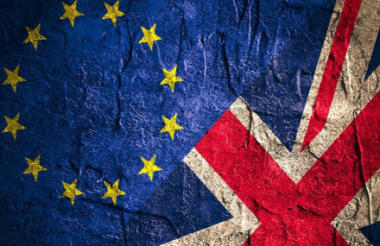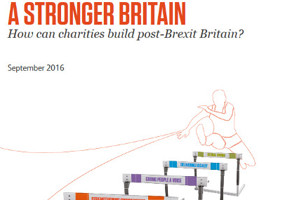A report from umbrella body Bond has said Brexit could leave UK aid organisations with a funding shortfall of up to £317m.
Civil society organisations in the UK receive the second highest level of aid funding from the EU - both grant and service contracts combined. When grant funding alone is considered, UK CSOs are the biggest recipient.
Between 2012 and 2016, EU development and humanitarian aid funding for UK CSOs averaged £266m (€300m). Last year, it was £316.7m (€356.9m). Bond says all of this could potentially be lost.
The impact of Brexit on EU funding for UK CSOs revealed that agencies operating in countries and regions currently prioritised by EU funding will be particularly affected, as once the UK leaves the EU, UK CSOs will no longer be able to access EU funding for interventions in some key countries.
It said that humanitarian funding is a particular concern, as spending to UK CSOs in 2016 through European Civil Protection and Humanitarian Aid Operations (ECHO) was £180m (€205m).
It adds that it is unclear whether UK CSOs relying on humanitarian funding from ECHO will still be eligible after Brexit based on current rules and technicalities, or “how much leverage the sector might have in negotiating favourable access to the new ECHO framework partnership agreements for 2019 to 2021”.
Uncertainty impacting sector
Bond says that this uncertainty is already having an impact on the sector, notably through currency devaluation and fluctuations. It said that “Brexit will leave most UK CSOs that currently access EU funds facing a significant funding shortfall and this will have an impact on the work they do in developing countries, at least in the short to medium term”.
Smaller and medium UK CSOs, with higher rates of dependence on EU grants, are said to be more at financial risk. The report said that the UK should separately negotiate terms and contribution rates to stay in those EU development cooperation programmes that score highly in terms of effectiveness.
It said that UK and CSOs must “influence current policy debates and processes setting the direction for the EU’s future development cooperation and humanitarian aid policies and financial frameworks”.
Tamsyn Barton, chief executive of Bond, said: “This timely piece of research shows that UK CSOs could risk an annual funding shortfall of up to around €360m a year because of Brexit. This significant chunk of funding goes to projects that help the world’s poorest by providing children with quality education, access to healthcare, as well as skills and jobs for women and men around the world facing poverty.
“To protect the vital contribution UK CSOs make they must be given a voice during negotiations. The UK Government should aim to secure their continued participation in selected development and humanitarian programmes, which may mean reforming some funding instruments to allow for co-financing from non-EU countries, including the UK.
“It is important that the UK’s exit from the EU doesn’t hurt the poorest people around the world, and that the leading contribution of UK CSOs to EU and global development policy and programmes isn’t lost.
Bond has also produced a second report on The impact of Brexit on UK and EU international development and humanitarian policy, which looks at the potential impacts and opportunities associated with Brexit on a number of priority policy areas in international development and humanitarian aid.
|
Related articles












